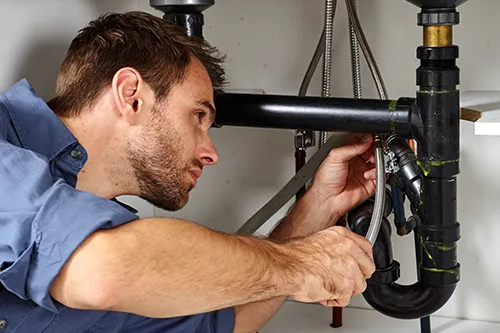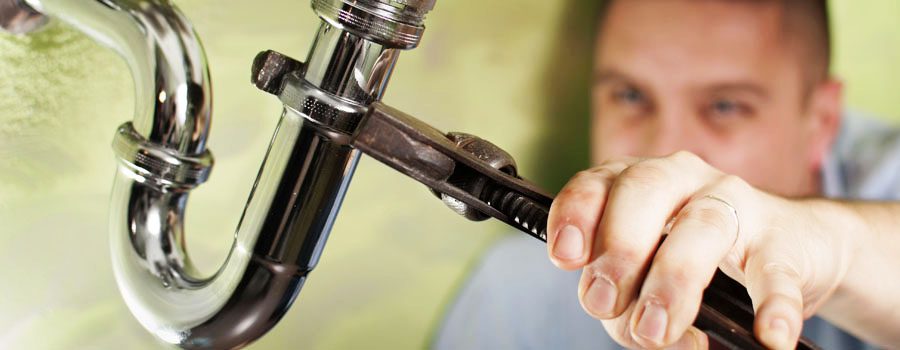Could You Possibly Ruining Your Home's Plumbing? 6 Warning Signs
Could You Possibly Ruining Your Home's Plumbing? 6 Warning Signs
Blog Article
We have unearthed this great article about Can Hard Water Ruin Your Appliances? below on the internet and figured it made perfect sense to talk about it with you on my blog.

The trick to durable devices, unsurprisingly, is proper upkeep. There's no hard and fast guideline that can assure your plumbing devices a lengthy wear, yet you can prevent unnecessary damage as well as fixings by avoiding bad plumbing habits.
You ought to quit doing these 6 things else you'll maintain calling your plumber over for minor faults.
Flushing whatever
Yes, your commode drain leads to the sewers, however that does not indicate you must discard just anything away. Many 'flushable' products are really wonderful obstruction beginners, for instance dental floss. Asides keeping noticeable non-flushable products like cables and plastics out of your commode, you must also stay clear of flushing cotton buds, menstruation products, wipes, daipers and prophylactics down the bathroom drain.
Putting grease in the sink
We understand correctly getting rid of oil after a hearty meal is a discomfort. But just putting it down the drain can do long-term harm to your pipelines. "The fat and grease can block your drain badly adequate to force you to call a plumber," clarifies Dawson. "Plumbing works best when it's well taken care of-- not abused with grease."
Using way too much drainpipe cleaner
Making use of a drainpipe cleaner more than one or two times a month is an indication that something serious is going on within your pipelines. Now, rather than facing the main issue, you choose a quick fix; a carbonated drainpipe cleaner. Rightfully, a drain cleaner will take care of the clog, yet at what price?
The chemicals in a drain cleaner can accelerate the rust of your pipelines. Add that to whatever underlying problem is triggering the blockage and you may have to a severe issue on your hands.
If you experience too many clogs, call your emergency plumber as opposed to using a drain cleaner.
Not rinsing dishes prior to filling them right into the dish washer
it's called a dish washer, yet throwing in dishes, pots, and also pans covered in huge food particles can really create some serious damages to the home appliance, causing long-term troubles down the line. "Homeowners may need to get their dishwasher repaired more often if they don't rinse their meals prior to loading, or at least get rid of bigger food pieces," explains Audrey Monell, owner of Forrest Anderson Plumbing as well as A/c in Glendale, Arizona. "Food that gets stuck on meals creates the dish washer to work harder, which can wear down components much faster, leading to problems."
DIYing whatever
With plumbing, a stitch in time truly does conserve 9. You can stop a fullblown plumbing emergency by calling your plumber at the right time.
You may have learnt a few plumbing hacks from your dad, however you ought to recognize where to fix a limit as well as call an expert. As an example, you might have the ability to take care of an obstruction on your own, but you shouldn't attempt to transform a pipe. You can inequality pipelines or overtighten a screw, causing more injury and also damages than you assumed. Calling a plumber is a safe and also affordable decision.
Not transforming your dishwashing machine tubes
One easy method to make sure that you utilize your dish washer for years is to replace the hose pipe a minimum of when in 5 years. This additionally obtains cleaning device tubes.
Gradually, food particles, soap as well as grease can form obstructions within your pipelines. Changing them on time will certainly prevent any kind of presure accumulate that can damage the internal functions of your dishwasher or washing equipment.
A strengthened steel braided tube does a great work of extending your equipment's usage time.
No winter months precautions
Extreme weather conditions misbehave for your pipes, specifically if they're made of steel. You need to protect your revealed pipes, as well as your water tank, even if you have a hot water heater. You should additionally switch off your garden pipe shutoff as well as any other external water networks. These networks are electrical outlets for chilly; you pipelines can start to freeze from outside if you don't.
How Hard Water Damages Your Plumbing and Appliances
Hard water is no stranger to most households across America. This silent invader affects 85% of homes in the United States every day, wreaking havoc on pipes, plumbing fixtures, and water-using appliances.
Should you become a victim of hard water, you must understand exactly what it is and how it affects your plumbing and appliances. This will help you determine the correct measures to put in place to fix or prevent any problems that may arise.
First off, what exactly is “hard” water?
In short, “hard water” is used to describe water that contains relatively high amounts of dissolved minerals, primarily calcium and magnesium, and a host of trace metals. When rainwater falls from the sky (usually in a pure form), it absorbs the hardness minerals from rocks and soil, which changes it from soft to hard water.
What about my plumbing and appliances?
Mineral deposits from hard water can cause buildup on tubs, shower, sinks, faucets. But that’s only a small scratch of the surface. Those minerals can gradually build up inside pipes, fixtures, water heaters, washing machines, and dishwashers. Once they accumulate in those areas, they can clog pipes and create major problems throughout your plumbing system, from reduced water flow to increased pressure on pipes and fixtures.
This limescale buildup might affect some appliances, causing them to operate less efficiently and wear down faster. And the result? Higher energy bills, more (costly) plumbing replacements and repairs, and damaged appliances.
Keep in mind that certain types of plumbing are more susceptible to clogging than others. Copper, PVC, and PEX pipes are more resistant to hard water buildup and corrosion, but they can still get clogged or completely blocked by scale deposits.
How do I know if my water is hard?
White limescale buildup on plumbing fixtures (or any of the other signs mentioned above) is usually a good sign that your water is hard. If you suspect that you have hard water, you can simply shake up a small amount of dish soap and water in a closed container. If the mixture doesn’t create a lot of suds, you probably have hard water.
The most precise method, however, is to test your water with a DIY test kit (sold online or at local home centers or hardware stores) or send a water sample from your tap to a local lab to be tested. Be sure that you understand the nature of the test, the water condition being measured, and the significance of the test results.
Another way to obtain an estimate of water hardness is to check your annual water quality report to see if your water provider has reported any instance(s) of water hardness in your water supply.
https://www.springwellwater.com/how-hard-water-damages-your-plumbing-and-appliances/

I'm very excited about Don’t Let an Earthquake Damage Your Plumbing and I am assuming you enjoyed the entire blog post. Appreciated our post? Please share it. Help somebody else check it out. Thanks so much for your time invested reading it.
Show Details Report this page